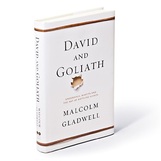
 To be sure, Russia was the odds-on favourite going into the international freestyle homophobia competition. It got strong marks from bigots the world over for its so-called gay propaganda law, which makes it illegal to tell children about gay equality. And it even upped the anti at the last minute with a surprise move forbidding foreign same-sex couples (and single people from countries where same-sex marriage is legal) from adopting Russian children.
1 Comment
 The media by and large made Saturday's arrest of the world's most-wanted drug lord sound like good news. His capture "signals progress" and "shows Mexico is making headway," reported Bloomberg Businessweek in the title and opening paragraph of its report. Sure, at least 92,000 people have been murdered or disappeared in Mexico since 2006 thanks to the drug war, but putting this guy behind bars "marks a victory" for Mexican President Enrique Pena Nieto.  Would you throw one person in front of a runaway trolley in order to save two people? How about half a million to save a million? Those are the non-partisan Congressional Budget Office's estimates of how many would be harmed and how many helped in the US by a minimum wage hike from $7.25 to $10.10 an hour. Specifically, it would lead to the loss of about half a million jobs, but lift about a million people over the poverty line, currently set at $24,100 a year for a family of four. Is it worth it?  Five years in, a White House report has rekindled the debate: Did economic stimulus create millions of jobs and avert another Great Depression, or did it prolong the recession and delay recovery? Which of these opposite interpretations you find more convincing hinges, of course, on the counterfactual question of what you think would have happened if the US government had not spent that $787 billion. How do we decide what to think about such matters?  Spending a week off in Florida in February, as I just did, is a beautiful thing for a Montrealer. Just a few decades ago, though, it would have been all but impossible for most: Air travel was prohibitively expensive, and driving would eat up the whole week. Prior to modern transportation, it would have been literally impossible, not that most people back then ever got a week off. Now, for a very few hundred dollars, I can fly through the air like a bird and be soaking up the sun in a matter of hours.  Malcolm Gladwell's most recent book is about a lot of things, but one of the things that it's about is that the powerful are not always as powerful as they appear to be. In my latest Québécois Libre article, "The Limits of Power: A Review of Malcolm Gladwell's David and Goliath," I briefly examine how Gladwell treats this idea, and then mention some of the possible implications of questioning the legitimacy of political authority that he does not discuss.  I finally got around to reading Herman Hesse's 1943 novel The Glass Bead Game recently, for which the author won the Nobel Prize. I read it in small bites, just 10 or 15 pages at a time. It's just not one of those books that sucked me in so I forgot to eat or turn off the light and go to sleep already. But I also took my time reading it because I wanted to savour the richness of Hesse's writing style.  The drive between Alberta's two main cities, Calgary and Edmonton, takes a little over three hours according to MapQuest. A high-speed rail link could get people from one downtown to the other in just 84 minutes, less than half the time. Would it be worth it to taxpayers for the government to build such a rail line? It's hard to say. Some would surely be thrilled, while others wouldn't care. Thanks to a company called Alberta High-Speed Rail, though, provincial legislators might not have to make that judgment call.  For much of human history, the vast majority of people worked in agriculture. Today, thanks to the Industrial Revolution, that has fallen to about 2% of the population in wealthy countries. But all of us whose ancestors used to produce food have not just been joining the ranks of the unemployed for the past couple hundred years. We've been working at other jobs, in many cases doing things our grandparents' grandparents could not imagine. Luddites were wrong to worry back then, but is it different this time?  Here's what a proper "Farm Bill" might say: "If you can sell your produce or livestock for more than the cost of your inputs, you may earn a living as a farmer or rancher. If you can't, you won't. Since weather is unpredictable, you should probably pool your risks by buying insurance. Good luck." Instead, the 949-page monstrosity that's sailing through the US Congress promises to keep protecting certain well-connected farmers from the discipline of the market. |
Who Writes ThisBradley Doucet is a Montreal writer and the English Editor of Le Québécois Libre. More of This
June 2016
Even More of ThisThe Limits of Power: A review of Malcolm Gladwell's David and Goliath
Math Education Should Be Set Free Santa on Trial What Does Greenpeace Have Against Golden Rice? Dear Sugar Man: Does a Nation Really Need a Charter of Values? To Dream a Possible Dream: MLK’s Famous Speech, 50 Years Later The Cost of Regulation: Why It's Worth Thinking About Is Government a Necessary Evil? A Review of Michael Huemer's The Problem of Political Authority The Planned Chaos of New Orleans, LA The Unplanned Order of Houston, TX Dynamists vs. Stasists: Virginia Postrel's The Future and Its Enemies, 15 Years Later |